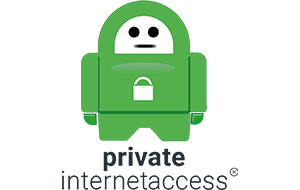WHY SHOULD YOU GET A VPN
Wi-Fi connections can put you at risk of hacking and tracking; a VPN provides the security you need.
Everything You Need To Know About VPNs
VPNs are becoming more and more popular all over the world, offering an array of benefits to those who use them, but what exactly are they? How do they work? And what kinds of risks are you taking by not having one? This article will give you the full lowdown on VPNs, covering their usage, their advantages, and how they work as well.
Let’s start with an introduction. VPN stands for virtual private network. A VPN is used to encrypt your internet connection, providing additional security and protection whenever you go online. VPNs can also be used to mask your IP address, protecting you from prying eyes and allowing you to access geo-restricted content or websites.
Basically, a VPN allows you to connect to the internet in a better and more secure way. They let you connect to the internet via a separate, secure server, setting up a virtual network that is totally impossible to trace and 100% secure as well.
In the past, when looking for online security and anonymity, people made use of systems like leased lines, WANs (wide area networks), and intranets, but VPNs replaced every single one of those options by being way more effective and efficient, as well as super easy to set up.
How Does A VPN Work?
Many people want to enjoy the benefits of a VPN but can feel a little confused or intimidated by how complicated and technical they seem to be. The truth of the matter, however, is that VPNs might seem complex on the outside, but when you actually take a closer look at how they work, you see that they’re pretty simple in the end.
When you usually connect to the internet, your connection goes straight from your computer (or phone or any other connected device) to your internet service provider and then to the various websites and online services you use. It’s a direct link from your device to the internet. With a VPN, however, the connection takes a little detour.
When you connect to a VPN, your connection is rerouted via a secure private server, operated by the VPN provider you choose. Then, the connection continues in the usual way, allowing you to connect to sites just like normal, only with extra protection and total anonymity.
Basically, the VPN acts like an ‘intermediary’ or ‘middle man’ when you connect to the internet, shielding your connection, hiding your IP address, and forming a sort of private tunnel from your device to the sites and services you visit.
Online Privacy And VPN
When it comes to VPNs, there are two primary advantages to consider: security and privacy. Most people get a VPN because they want to have more secure internet connections, as well as being able to browse the internet more privately and anonymously. But how does this work and why is it so important?
Well, it all comes down to a simple thing called an IP address. When you connect to the internet, your device sends out a string of numbers which lets websites know where you’re connecting from and who you are. This is your IP address, and it can be used by companies like advertising companies, ISPs, or even hackers to track your browsing history, downloads, and other online activity.
Most people don’t like the idea of ISPs and other agencies or individuals being able to watch what they’re doing online and potentially use that information against them, so they get a VPN. With a VPN, your connection passes through a secure server, which has its own IP address. So as your connection passes through, your original IP address gets hidden and replaced with a new one.
This means that when you connect to websites and other online services with a VPN, they won’t see your actual IP address. They’ll simply see one of countless random IPs generated by the VPN, so they won’t be able to track or trace you in any way, allowing you to enjoy the freedom and comfort of anonymous internet browsing.




